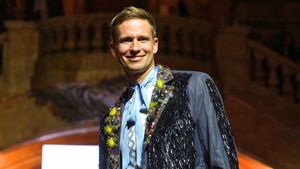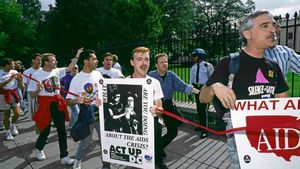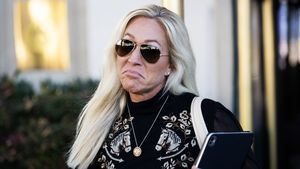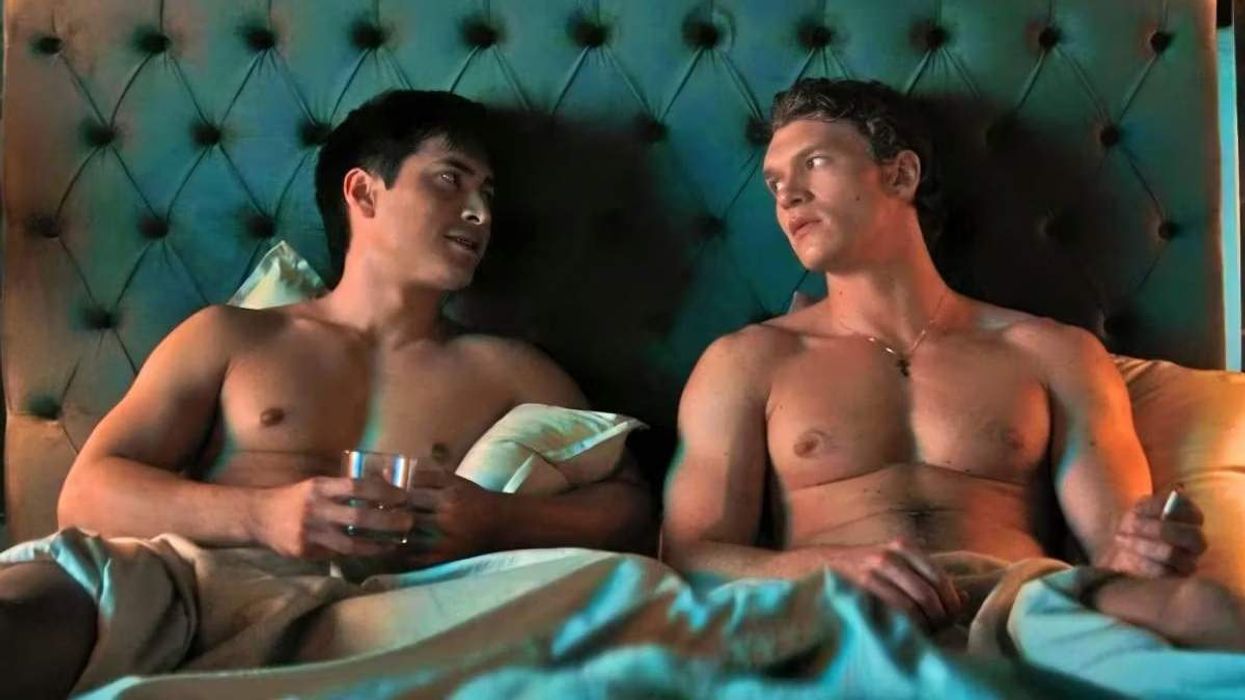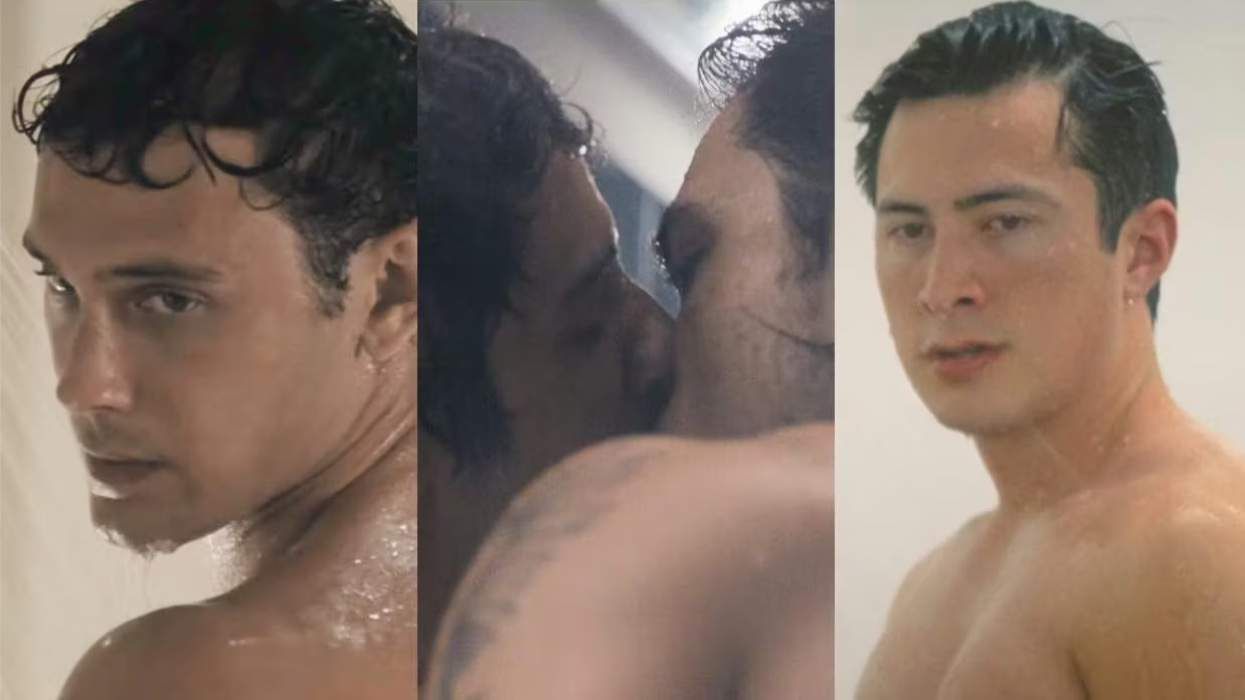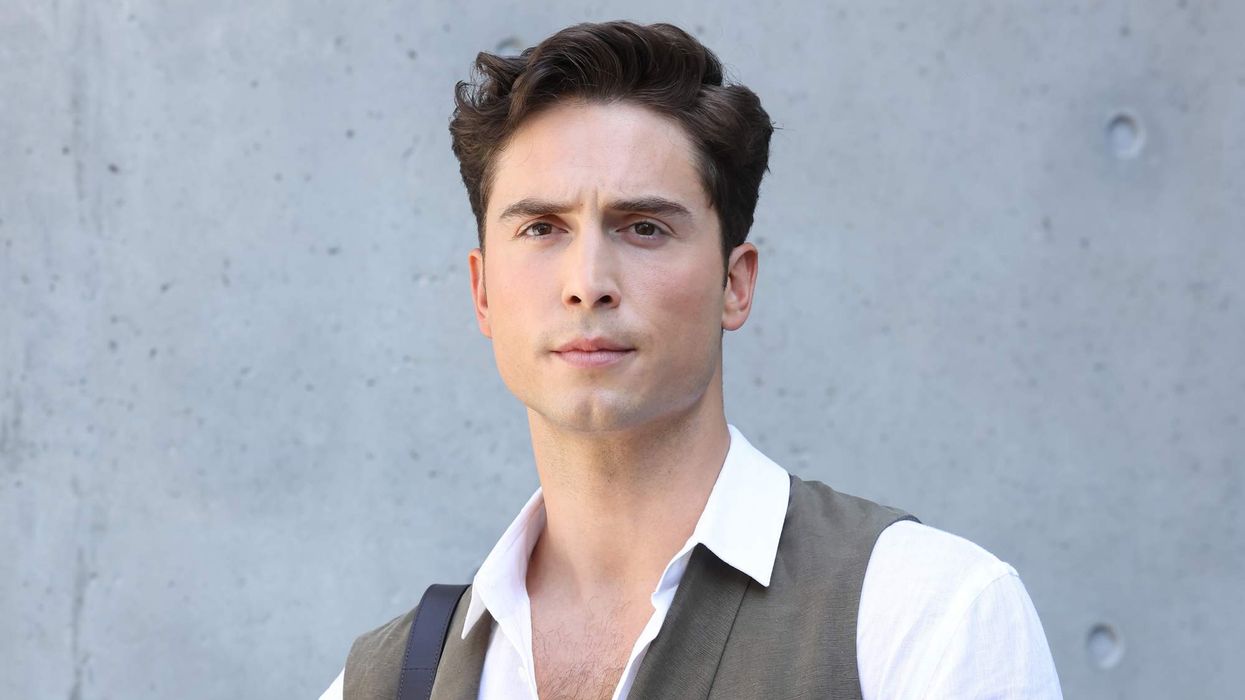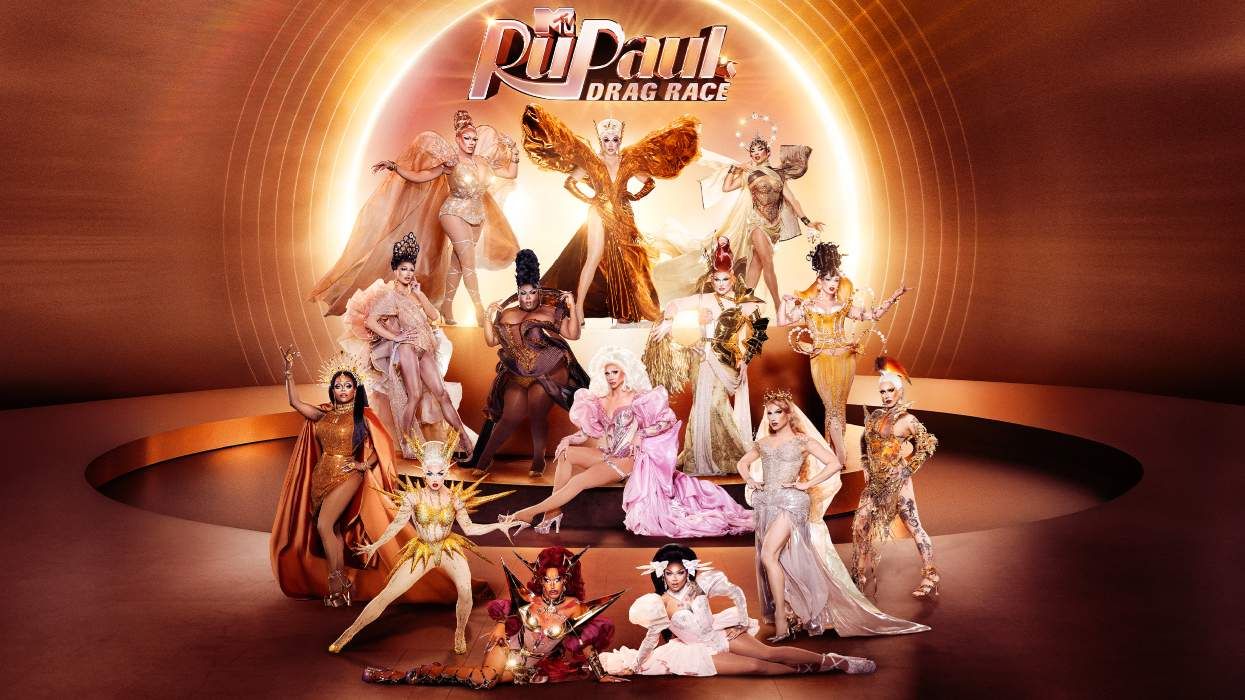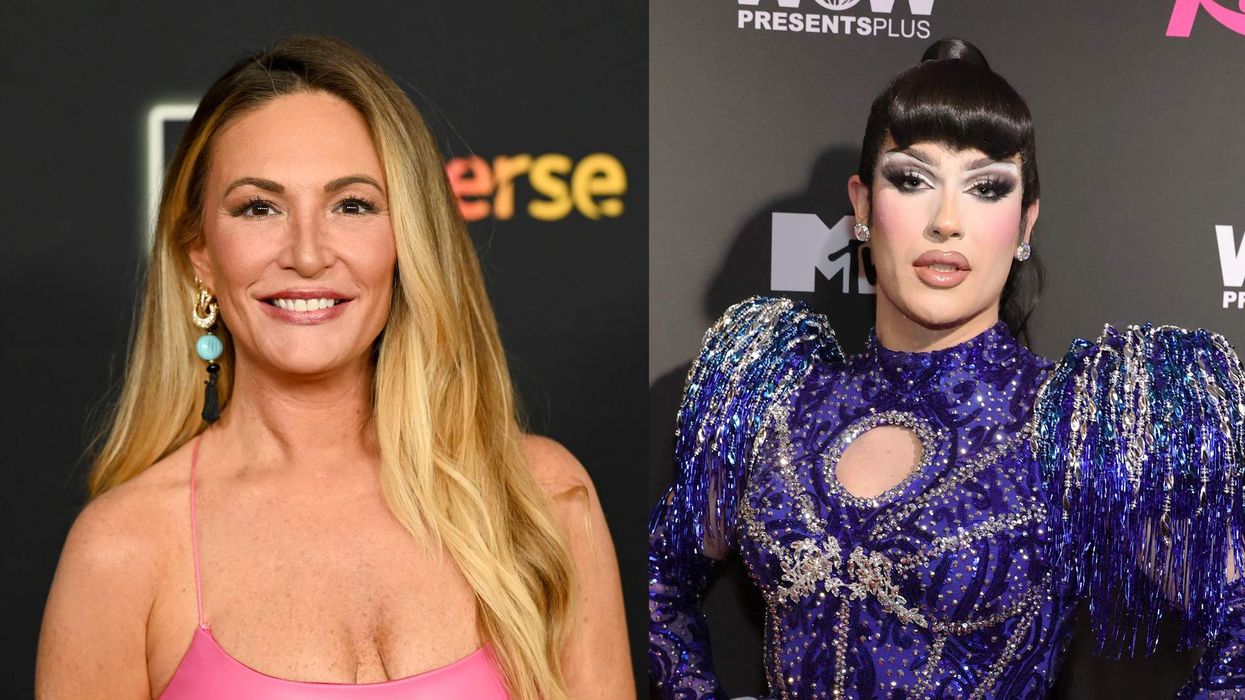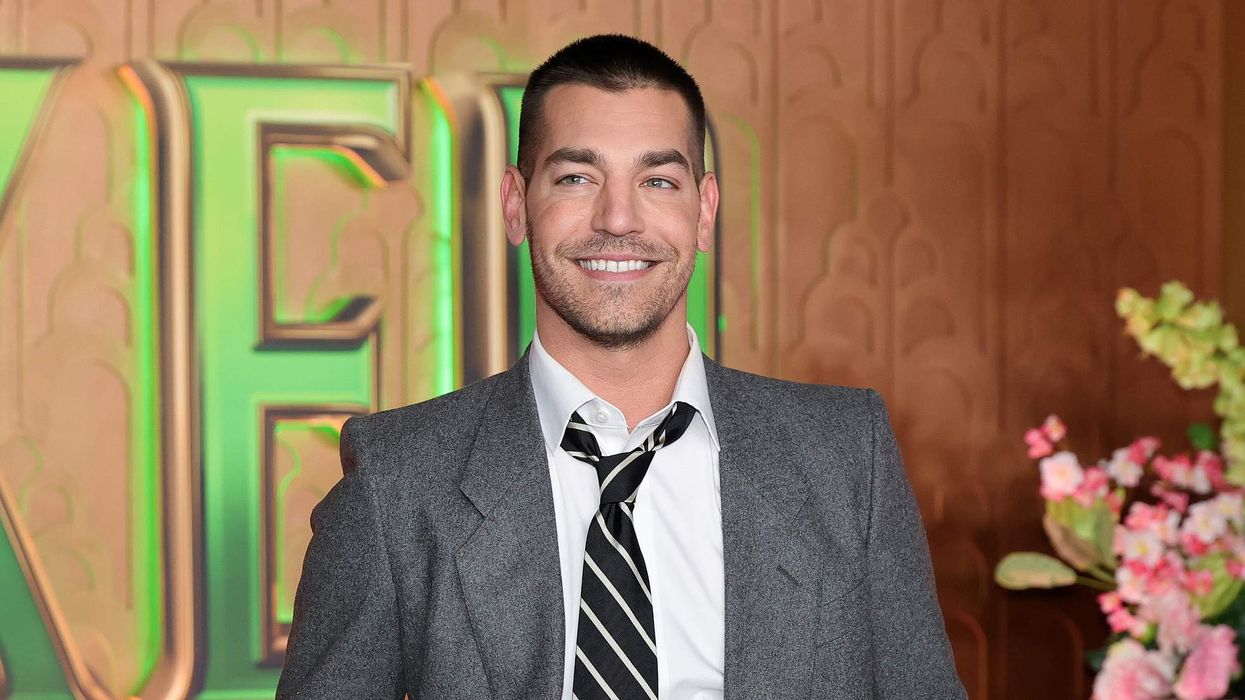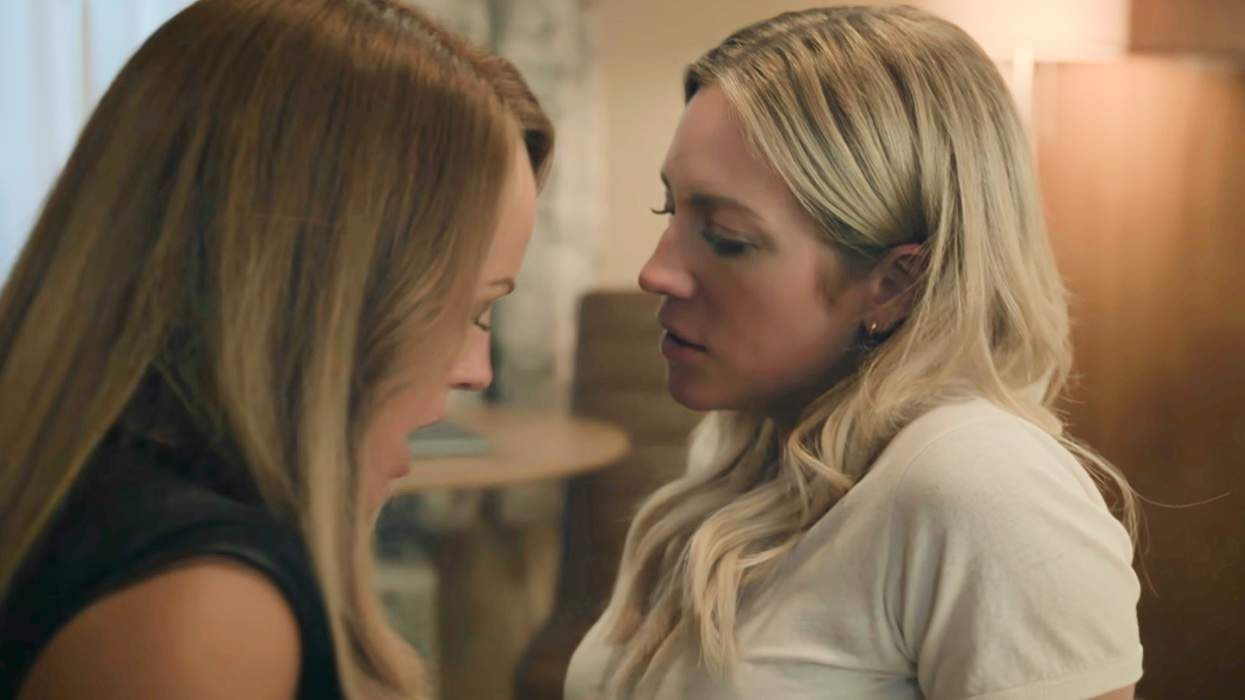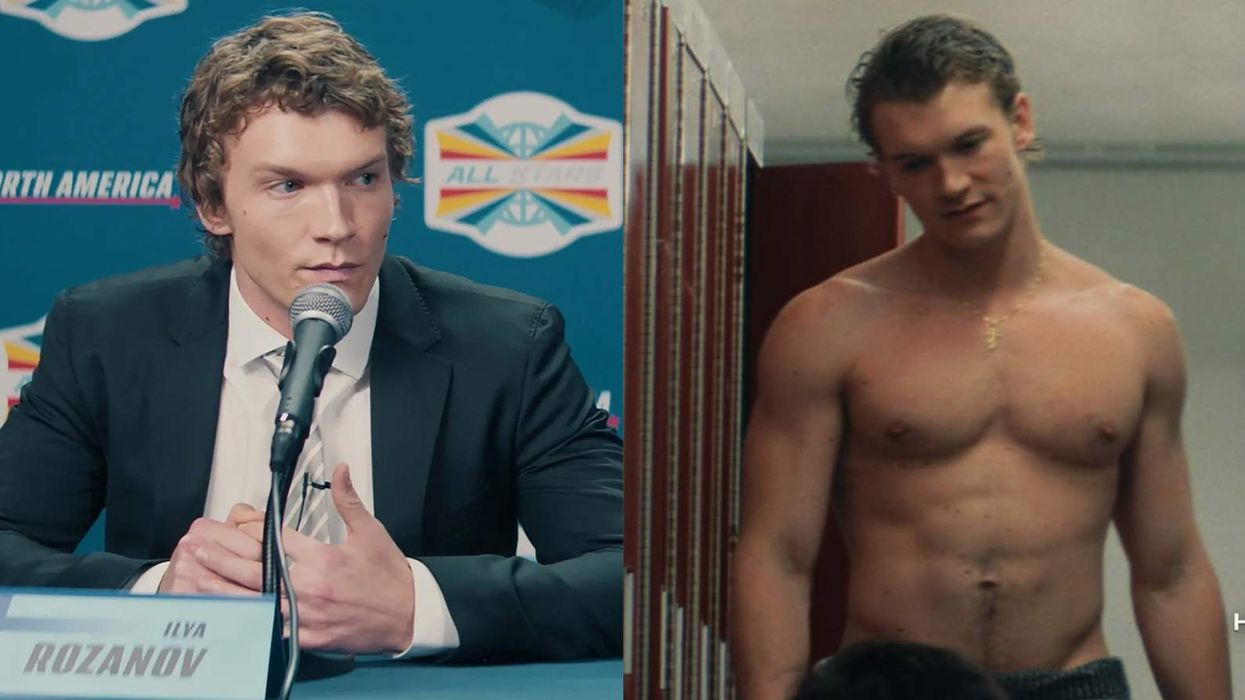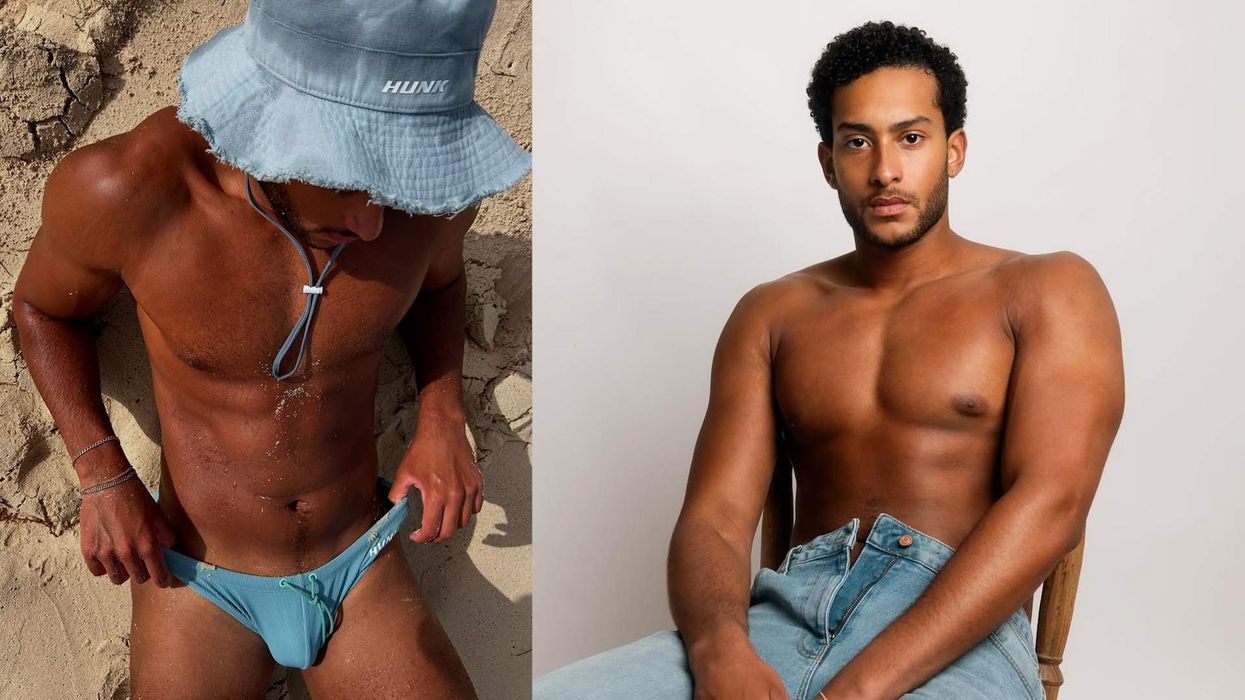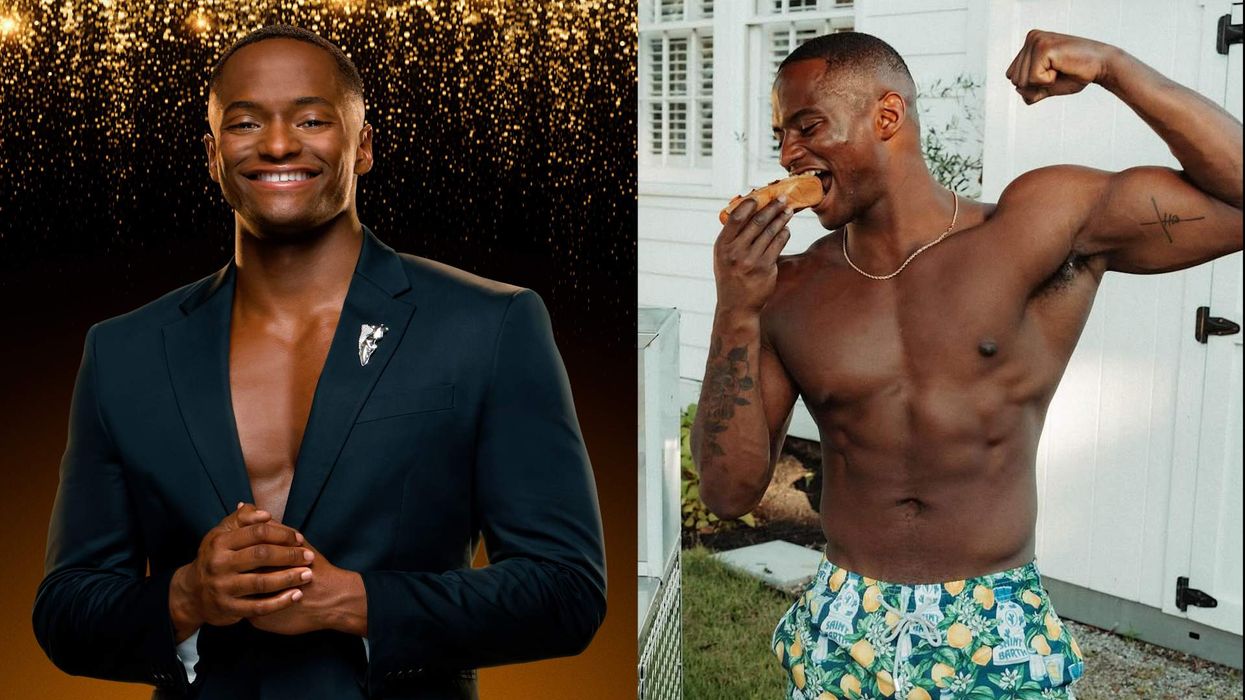Lovers of cinema in general, and horror specifically, need to acquaint themselves with the name and work of Nikyatu Jusu. She’s about to become an unstoppable force in the art of film, and her voice is one that marginalized people, including queer individuals, have long been craving.
Nanny, Jusu’s feature film debut, premieres in theaters today but first began making waves earlier this year when it won the Grand Jury Prize at the Sundance Film Festival. Sundance described it as a “horrifying yet compassionate portrayal of a mother separated from her child,” that “cannot be contained with any one genre,” adding, “the story builds on itself, scene after scene offering the audience a viscerally spiritual experience should they choose to embrace it.” And embrace it they should. The movie is haunting, heartbreaking, but ultimately hopeful and stays with you long after the credits roll.
The film follows a Senegalese immigrant name Aisha (Us’ Anna Diop) who has come to America, leaving her small child behind in hopes of making a life for him in a new country. She takes a nanny job for a wealthy Manhattan couple – played by Michelle Monaghan and Morgan Spector — who are game in their roles as sinister WASPs whose malevolence is all too familiar, but no less chilling for its real-world prevalence.

Courtesy of Prime Video
But that’s not all: As Aisha’s isolation from her child, her culture, and her life grows, a supernatural threat begins to seep through the walls of her reality — metaphorically and sometimes literally. It’s a relatable tale for anyone who has felt alone in a crowded city or simply by their innate otherness. And it’s lyrically told with visual flare and a central performance that left me breathless.
Jusu is an undeniable talent, as evidenced by both Nanny and her short film Suicide by Sunlight, which features a young, Black, bisexual vampire — who can day walk thanks to the melanin in her skin — navigating what her transformation means for her as a mother and a woman. It’s in a word excellent and is crying out for further development. News broke this week that Jusu’s next project is returning her to this property, adapting it into a feature-length film for Jordan Peele’s Monkeypaw Productions.
With Nanny now in theaters, PRIDE spoke with Jusu about the inspiration behind the film and its mythology, the stunning moment she learned she had won the Grand Jury Prize at Sundance, and how explorations of queerness feature in all of her works.
Watch PRIDE's interview with Nikyatu Jusu below.
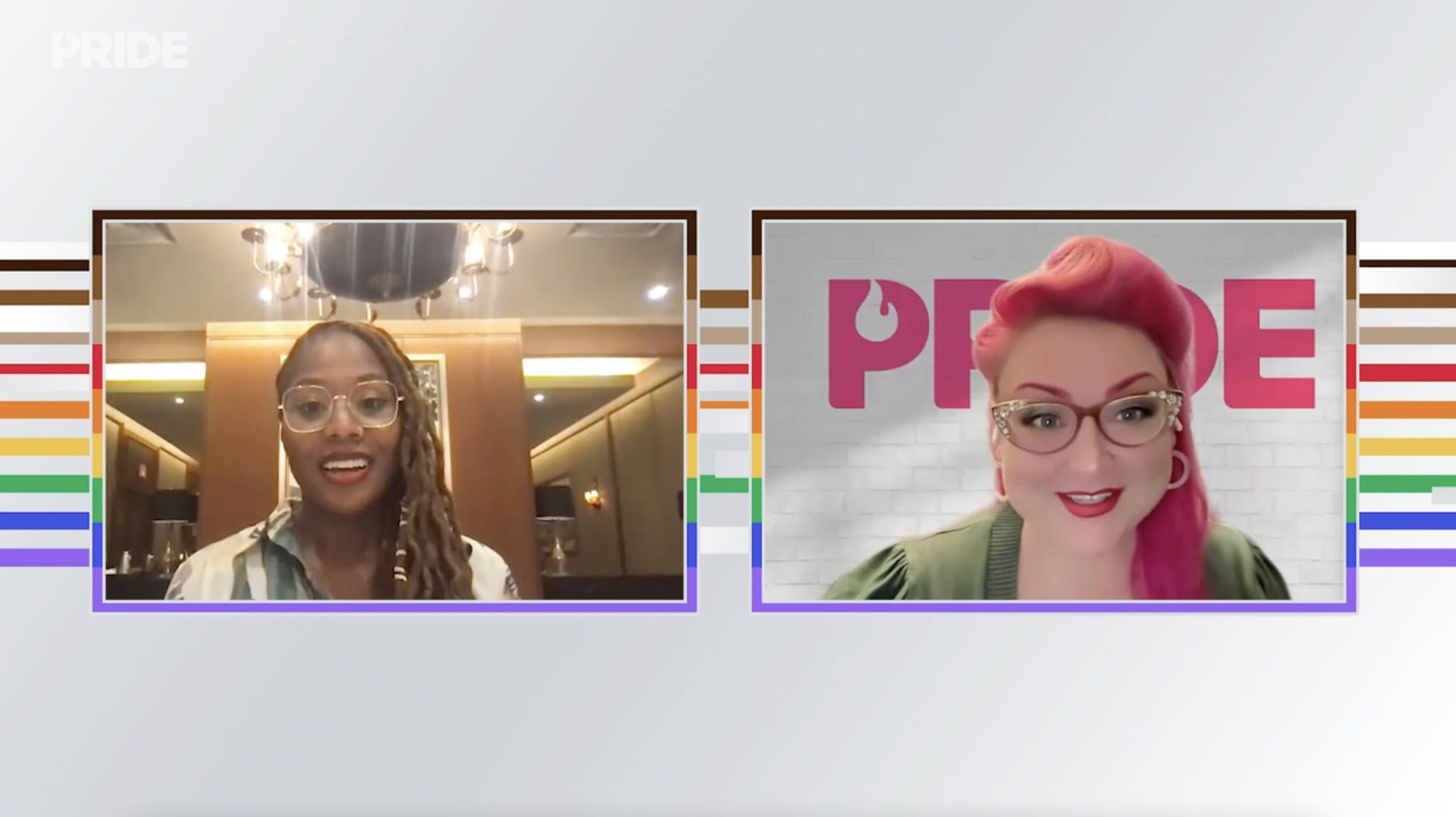
Tell me a little bit about what the experience is like to finally share this film, which has meant so much to you, with an audience.
It’s been a whirlwind. I think I’m still in the process of catching my breath, literally. Because we sprinted through post-production into getting into Sundance. That was a win in itself in my book, and then we won Sundance, and I was like, ‘Oh, my God.’
Nanny won the Grand Jury Prize in the U.S. dramatic category. How was that experience?
God, you know what, Sundance has been so good to me. They have been so good to me. I didn’t expect to win.
It was really emotional, because of how hard it was to make this film during a pandemic. With so much loss all around us — I lost my dad to cancer at the peak of the pandemic — I got really emotional when they told me that I won.
Sundance is smart, they’re always a few steps ahead of you, you think you have the time to write a speech, and they’re gonna tell you in advance. They literally called me and said, ‘Hey, we have some questions for you. Can you hop on a Zoom?’ And I said, ‘OK sure, I can hop on a Zoom.’ I get on Zoom and one of the judges is on the Zoom, and she starts talking and she says, we just want to award the prize. I think I blacked out.
They warned me they were recording just like this. I don’t know if you saw the reaction, but that was genuine, like real-time, tears and gratitude and a slight release, you know, after just a treacherous production process.
I understand this was a story that you’d been writing for years. What was it about this story that just would not let go of you?
This story is my mother’s story to some degree. It is the story of so many women, I think in my lineage and in my culture. Women who I’ve loved, women who I have yet to meet. It’s so many women who are around us every day that uphold society but are invisible — made invisible. So, I wanted to send her a woman who reminded me of the strength of the women in my family and the women around us.
What I appreciate so much is how this truly is Aisha’s story and no one else. In other films, her rivalry with her employers would become the central plot point, but instead, they are more of just a complicating factor to her story. Why was it important to make sure that this skewed away from those more typical tropes?
For me, it was organic to center Aisha And I think that I’m finding a lot of interviews and a lot of talks. People are reacting to that… It was very organic because she’s the main character. And in my world, she’s the main character. Yeah. And like you said, Amy and Adam are simply their supplementary characters, but they’re just as significant in various ways, but it’s not their story.

Courtesy of Prime Video
Without getting into spoilers I’d love to talk about Mami Wata and Anazi. They aren’t strictly antagonists here, which to me feels like an antidote to the way that West African folklore is typically presented in the horror genre — which has not always been really great, in terms of its representation. Do you feel like that was intentional for you to make sure to tell that kind of story?
I think it’s a natural consequence of me having done a lot of research because the reality is we don’t learn about Ananzi, the spider, and Mami Wata in school, depending on where you’re from. Even if you do hear about them, it’s like a cursory mention. So I did a deep dive into full West African folklore, and I did a deep dive into Mami Wata and Ananzi.
I really wanted to make sure that I at least did my best to stay true to what they actually represent and have represented in the African diaspora. And so based on this glacier of research — this is one of my best and worst traits as a storyteller, I love research… so I was going down all these rabbit holes.
What you see is a consequence of trying to stay true to what they represent, because they could easily be villainized. They’re not villains. They’re just different forms of resistance against oppressive structures.

Courtesy of Prime Video
Isolation is a common theme in horror, but one of the unique things about this beautiful film is the way it mines a different kind of isolation as a source of its horror. The kind that comes from being separated from your culture, your family, and your loved ones. Can you talk a little bit about that?
Some people are struggling with this being called a horror film, because of the isolation or the types of horror that, particularly in American cinema, we are accustomed to, like a haunted house, or a cabin in the woods, or, you know, these jump scares that are a product of that form of isolation. But you can be one of many people in a massive, dense city, and still be very isolated from your culture.
There’s so many people who have sacrificed and come to America and left people behind with a plan to get them here ASAP. But the plan rarely goes that way. So you’re constantly straddling multiple worlds. I think that being first generation I can see the nuances of different types of isolation in the urban setting.
If you’re someone who deals with anxiety or depression, it’s not just an immigrant thing. It’s literally so many forms of isolation that I think, can alienate you and serve as a horror story.

Courtesy of Prime Video
Whenever a horror film focuses on the outsider experience it tends to code as queer to me, is that something that resonates for you?
Of course. Particularly when I’m thinking about Mami Wata because sometimes Mami Wata is —I don’t want to say misgendered as a female figure, because in some cultures, they are perceived as a female figure — but they are a multitude of water spirits. And so in thinking about the engineering of this creature, this character, I do think about the spectrum of queerness, and how that informs that informs fantasy and reality.
It’s something that is heavily in my work. You saw it, you said you saw Suicide By Sunlight, right? You know, my main character is a bisexual, female vampire. Something that is also in my, my next project is navigating that spectrum of sexuality, and alienation. So it’s very prevalent in my work.
Nanny premieres in theaters today and on Prime Video December 16. Watch the trailer below.


















